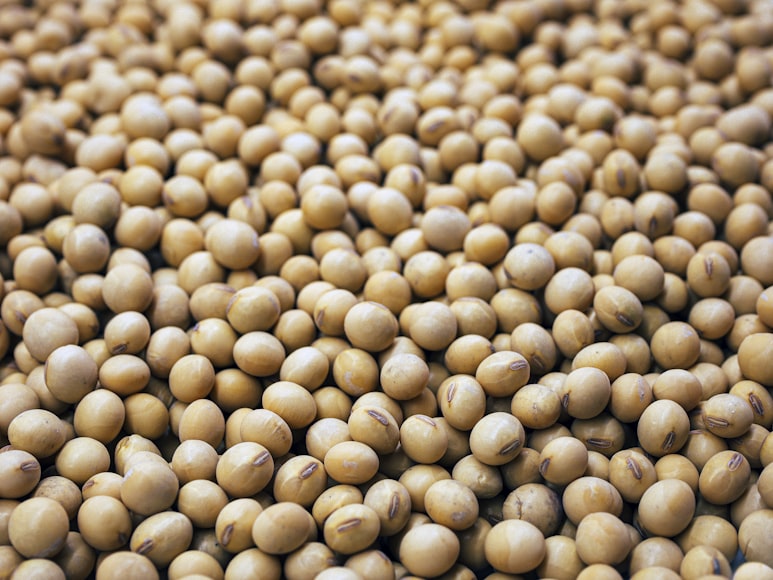Climate change is affecting how we lead our lives. For those most conscious of the changes we need to make, they know that the little things can make a massive difference to persevering nature and its resources. Our diet is one excellent example of a small choice that can determine how well our world thrives.
We use more land and resources when we eat a diet rich in meat and animal products. It is why many highlight the importance of a plant-based diet not only for our health but also for the environment. You may not want to forego meat forever, but even if you go vegan for a couple of days a week, it can make a difference to your health and the world.
The vegan industry has gone beyond lousy replacement milk and unsavory options. These days, the competition is high, and the possibilities are vast. One great vegan choice you can try is soy. Asian countries have been using soy for centuries, but Western cuisine is now stepping on board the soybean trend to enjoy the benefits of innovative soy products.
How Can Soy-Rich Foods Benefit Your Health?
Table of Contents
Soy comes with a list of health benefits. Here are the most significant reasons you should try this legume.
1. Soy’s Nutritional Composition Is Extensive
The list of macronutrients and micronutrients found in soy is extensive. This legume is an excellent plant-based protein source when you want to switch up your meat-rich diet. Saturated fat and cholesterol levels in soybeans are low, making it a great option if you want to minimize the risk of stroke or heart disease or if you want to lose weight.
This legume is also rich in fiber and will aid any digestive issues. Other vitamins and minerals in soy include potassium, iron, and folate, which will help improve your overall health and optimize your energy levels.
2. Soy Promotes Heart Health
Many medical professionals recommend a plant-based diet to patients with heart issues and cholesterol levels because the benefits of going vegan are significant. You are less likely to consume bad fat when you eat plant-based food; soy is an excellent example.
You can enjoy watching your health improve by consuming this legume with a balanced diet. Soy can lower inflammation, balance cholesterol levels, and improve blood lipid profiles thanks to its isoflavones. In doing so, soy reduces the risk of hypertension, atherosclerosis, and heart disease.
3. Soy Optimizes Bone Health
The isoflavones found in soy go beyond helping heart-related risks. This type of phytoestrogen can promote bone health in postmenopausal women. Soy has the potential to ease symptoms of estrogen deficiency, including ailments like osteoporosis and bone loss. When you consume soy-based food, you can improve bone mineral density and lower the risk of suffering a fracture.
4. Soy Helps With Hormone Regulation
The isoflavones also affect hormone regulation thanks to their phytoestrogen properties. These properties can mimic what estrogen does to our bodies. Although the impact is small compared to the estrogen found in our bodies, these compounds can benefit menopausal women enduring uncomfortable symptoms.
Studies suggest soy can help ease hot flashes and improve hormone imbalance and mood. Even so, studies show that not all menopausal women experience such benefits from soy.
5. Soy For Cancer Prevention
Preliminary studies suggest that this legume may also lower the risk of some forms of cancer. Such potential comes from the antioxidant and anti-inflammatory properties of isoflavones that can reduce the risk of colorectal, breast, and prostate cancers. The phytochemicals found in soy may also stop metastasis and tumor growth while enhancing cancer cell apoptosis.
6. The Controversies Surrounding Soy
Although soy appears to be a mere legume, its industry has created significant controversy due to unsustainable production. Moreover, some studies suggest the effects of soy on our hormones that can lead to thyroid dysfunction and other ailments.
Although the studies are in their preliminary stages, note that you must consume a significant amount of soy daily for that to happen. The key here is to go for balance. There are various plant-based protein options, like quinoa and chickpeas, so you do not need to consume soy with every meal.
Fighting climate change with a plant-based diet can feel redundant if the vegan options you opt for also harm the planet, whether it is soy, a banana, or peanut butter.
You must learn about the food you consume. If you buy soy products, make sure you do so from brands adopting sustainable practices. Check for labels of authentication that prove the brand is aligning with international sustainable practices that promote the well-being of our environment.
Conclusion
A soy-rich diet can lead to many benefits, especially if you are older. When you reach the age where health complications begin, you must do everything you can to keep your health in check. It is essential to do so to lower the risk of diabetes and heart disease and avoid the medication and difficulties that come with them.
A plant-based diet with vegan protein like soy can help you manage your overall health, optimize your weight, and better your energy levels. Your external features will also benefit from soy. Expect better skin with its antioxidant properties, with less visibility of wrinkles or dull skin.
- How To Create A Safe And Comfortable Home Environment For In-Home Care In Boca Raton? - July 16, 2024
- 10 Trendy Black Nail Ideas To Elevate Your Nail Game - May 6, 2024
- Getting A Free Divorce In Virginia? Here’s What To Expect - April 24, 2024








No Comments